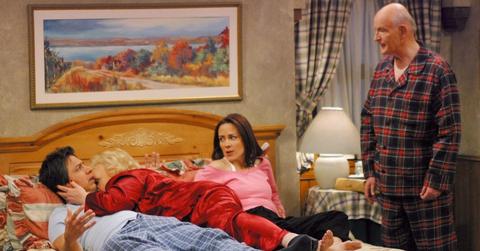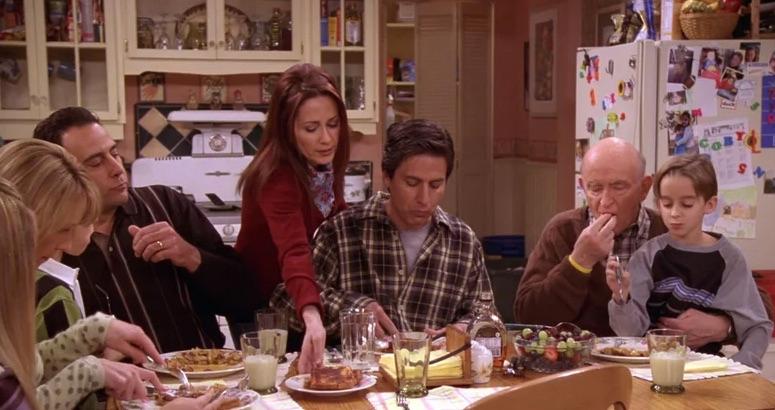Why Did 'Everybody Loves Raymond' End? Here's What Happened
Published May 15 2023, 8:47 p.m. ET

Back in the 2000s, Everybody Loves Raymond was a popular American sitcom that put comedian Ray Romano on the map, but after many years on air, it was canceled. But a lot of both new fans and old have been wondering why the show originally ended.
The CBS sitcom ran for nine seasons, using material from the everyday lives of Romano and the writers as plotlines. Following the dysfunctional Barone family, the show mined the mundane.
Find out more about why Everybody Loves Raymond was canceled below
What led to the cancellation?

A still from 'Everybody Loves Ray' on CBS.
On air from 1996 to 2005, the comedy from showrunner Phil Rosenthal maintained strong ratings well into its final season. But he decided to pull the plug on the show as he saw that everyone in the writer's room, including him and Romano, was burnt out.
“We ran out of ideas,” Rosenthal revealed to A.V. Club in 2011. “If you worked for me, I would say to you, ‘Go home, get in a fight with your wife, and come back in and tell me about it.’ And then we’d have a show."
He continued, "But after nine years, if we kept that up, our wives would leave us. And in California, that’s half. So, we made sure that we got out before that happened.”
Rosenthal also expressed that he wanted to finish the series on a high note rather than have the show die out with a whimper.
“You want to get off the stage before you wear out your welcome." He said, "And we actually cared enough about our audience to want to go before we became lousy. … we wanted to leave before we hit that level.”
What did they plan for the last few episodes?
What did they plan for the last few episodes?
In the final episode of the show, Ray undergoes adenoid surgery and experiences a mild complication, causing his family to go into a tailspin of anxiety. The family proceeds to lie about the complication to Ray, but he inevitably finds out.
Like all episodes of the show, it ended on a familiar note with the family eating one last final meal together around the dining table.
"I didn’t want to do a bloated, hour-long show." Rosenthal detailed, "I wanted it to be a show that was also not atypical. That maybe just because the audience knew it was the last show, the story would have a little extra resonance—and that’s all we wanted.”